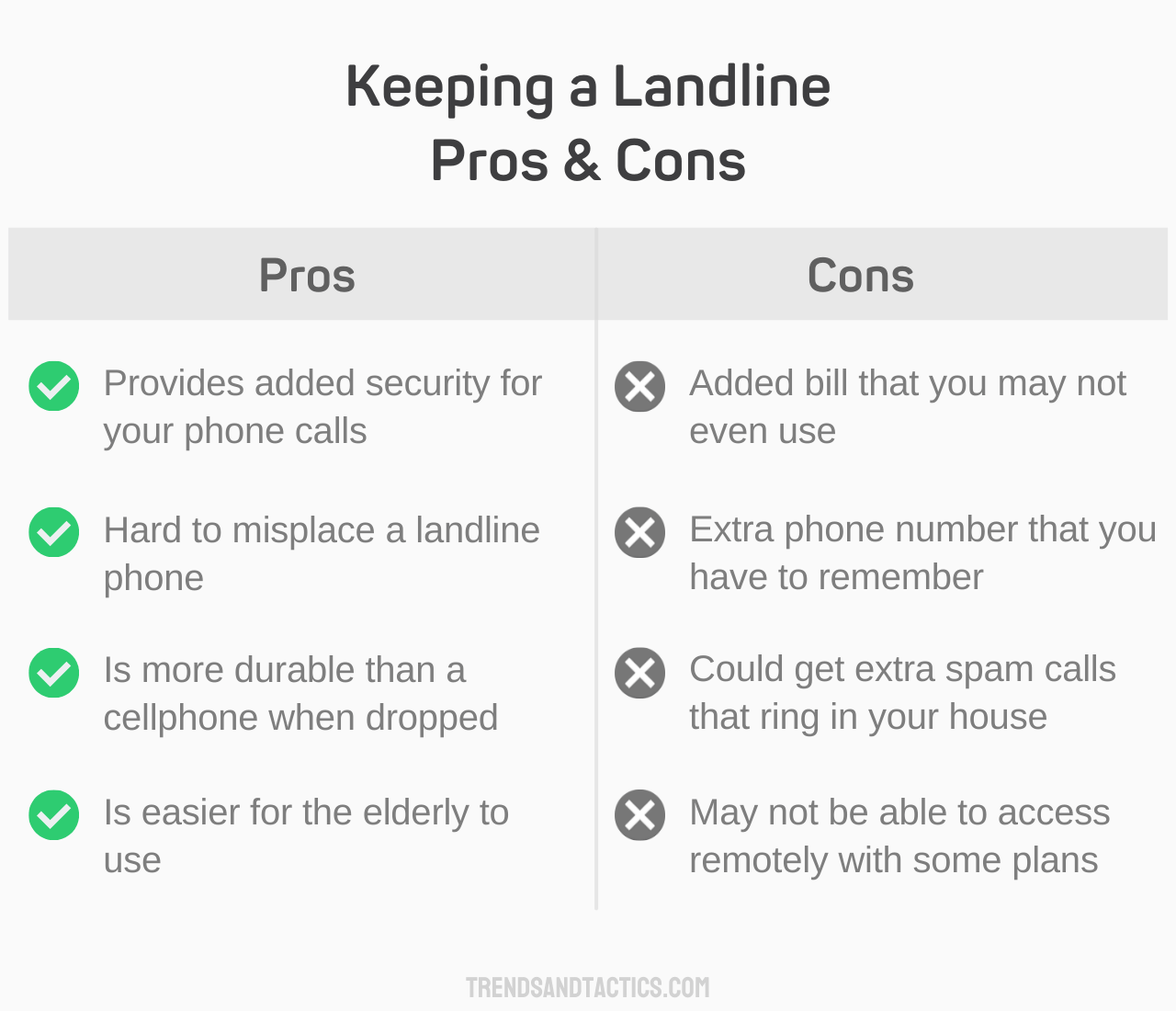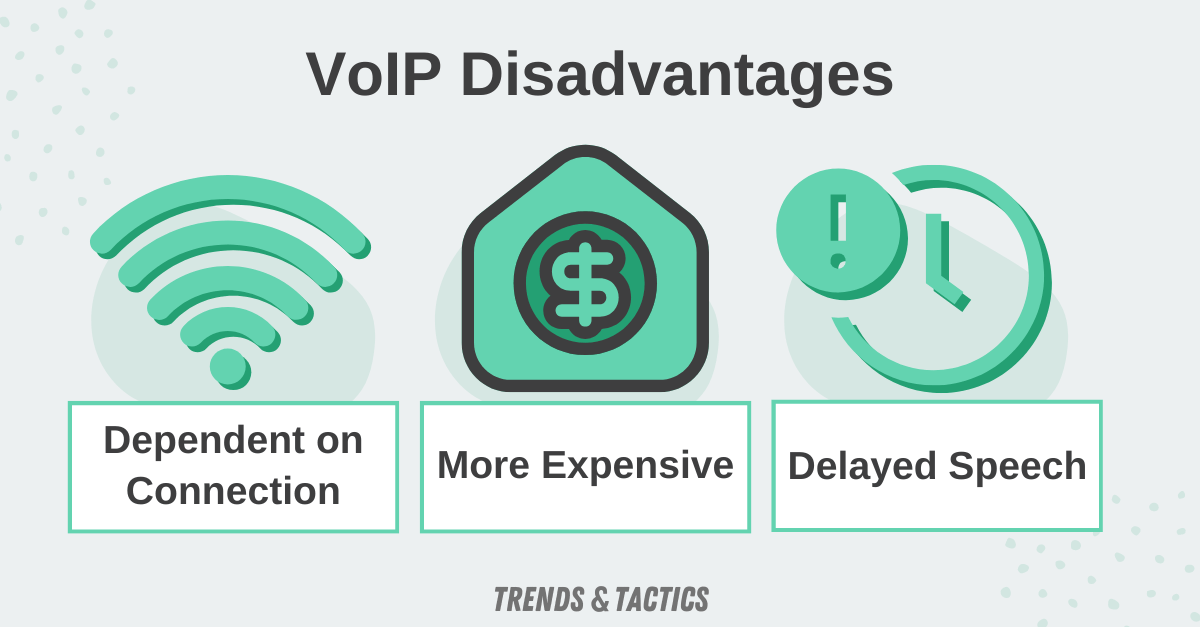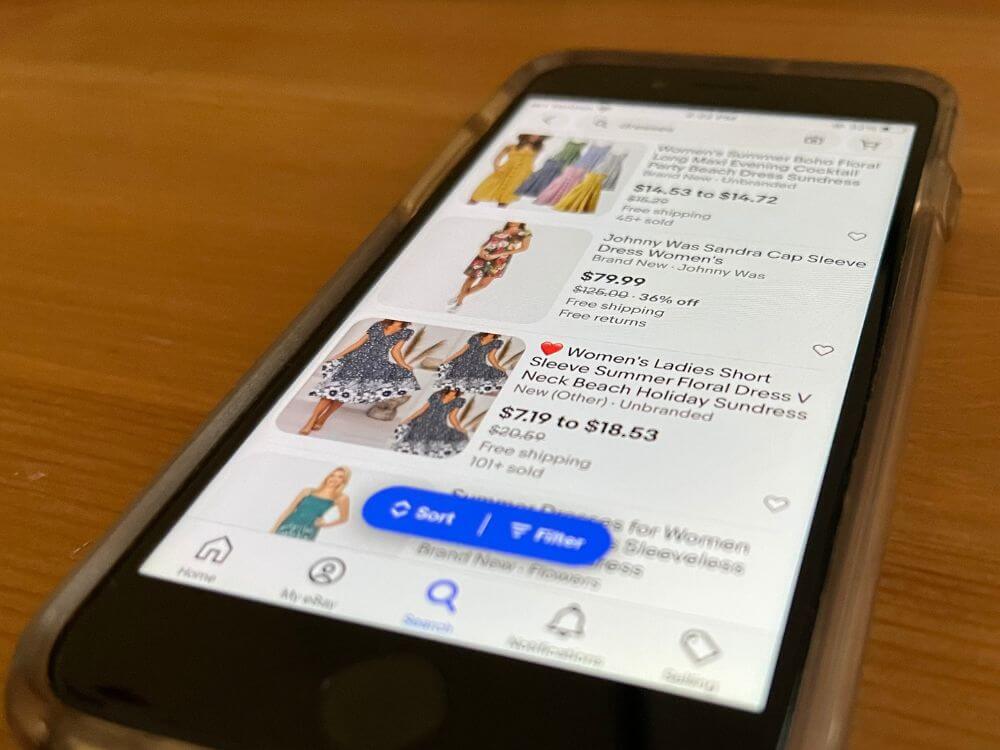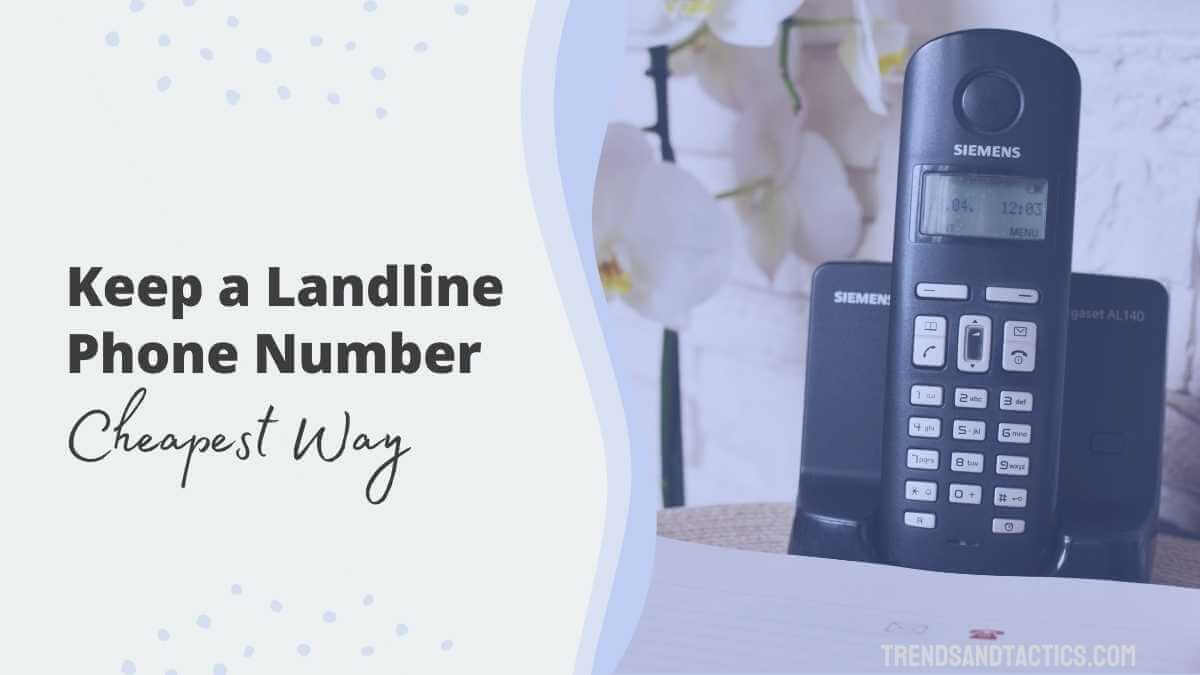Today, many people have abandoned the traditional landline in favor of mobile phones.
Even though you likely have a cellphone and use it as your primary mode of communication, there are still many reasons why you might want to know the cheapest way to keep a landline phone number.
If you’re searching for a cheap way to keep a landline number, follow our guide below to learn more information about the topic, as well as some benefits of doing so.
Reasons to Keep a Landline Phone Number
Despite the fact that cellphones have taken over as the primary mode of communication, there are still many benefits to keeping a landline phone number.
And the benefits aren’t just for older generations of people who didn’t have access to a cellphone, either.
Among the biggest benefits of keeping a landline phone number are:
- Quicker Emergency Aid – One of the big benefits of a landline are that emergency services can tag your exact location when you call 911 from a landline.
- High Security – Landline phones are much harder for bad actors to hack than a cellphone is.
- Backup Power – Bad weather can knock out cell towers and power. When this happens, a landline has backup power built in, so it can still work even when this happens.
- It’s Affordable – If all you need is the ability to make and receive phone calls, a traditional landline is much more affordable than a cellphone, making it great for budgeting.
If you’re searching for ways to keep landline phone number for least money, these are the main benefits of doing so, though there are certainly others.

Tactic for Success
If you want to keep a traditional landline, one of the cheapest ways you can do so is by bundling that service with other utilities. Many internet and TV cable companies will offer a form of a traditional phone service with internet and cable TV services. Bundling all this together could provide you with the cheapest method to get internet at home as well.
Traditional Landline Phone Service Without Internet
Many phone providers today will offer landline service with a lot of new perks such as the ability to use the number from anywhere in the world.
The way that they can do this is the fact that the phone is called VoIP — or voice over IP.
What this means is that your landline service is actually provided through the internet.
While your actual phone will look like a traditional phone, the technology backbone will be provided through your internet service.

There are many advantages to this, but there are also some downsides, too, including:
- Dependent on Connection – How well your landline service performs is completely dependent on the speed and performance of your broadband internet.
- Delayed Speech – Many people report that if their internet isn’t strong enough, there could be a lot of interference or delayed speech.
- Can’t Track for Emergencies – One of the biggest benefits of having a landline — being able to be located for emergency services — isn’t possible through VoIP.
- More Expensive – VoIP is typically more expensive than traditional landline service. You can cut costs other ways by saving money with meal kits or learning ways to get free eBay stuff.
Trend on the Rise
One of the benefits of VoIP calling is that it can provide cheaper service. According to recent surveys, this is especially true for international calling, where you can save 90% on costs compared to cellphone calling. So, if you make a lot of international calls, this could be a good avenue for you.
Can You Still Get Non-VoIP Landline?
Even though VoIP is becoming more and more popular in recent years, there are still companies that provide traditional landline phone service.
Some of those companies include the big ones that used to do this, including AT&T and Verizon.
If you want this service, make sure to mention when you’re calling to set up your service that you don’t want VoIP.
The customer service representative will then be able to quote you a price correctly and let you know whether it’s even available in your area.
The details for VoIP and traditional phone service are quite different, so you need to make sure that the company understands completely what you want before you get it all set up.
The last thing you want to do is try to set up a traditional landline service without internet and then find out that what you’ve been quoted is actually VoIP service.
Can you keep a landline phone number when moving?

One of the biggest downsides to having a landline phone number in the past was that you had to get a new phone whenever you moved.
Even if you moved within the same area code, you would need to get a new phone number since the number stayed with the location.
Trend on the Rise
Only about 37% of U.S. households still use a landline. This could actually end up being a benefit to you, though, as you could get it for cheap.
However, the Federal Communications Commission (FCC) changed that rule a few years ago so that you can keep your landline phone number even after you move.
The way that this is done is through porting your phone number. This can be done between wireless providers, an IP provider and a wireline provider, as long as you’re moving within the same geographic area.
There may be a charge for porting your phone number, though you will have to check with your providers on this. You could also potentially request that they waive that fee for you.
To do this, make sure you don’t terminate your contract with your existing provider — if you are changing providers.
Then contact the existing company to get this started. They will walk you through the entire process of porting your landline phone number when you move.
Can I cancel my landline and keep my number?
Once you start using your landline number, you will likely start getting used to the number that you have and use it for many things.
However, there might come a time when you decide that you no longer wish to keep the actual landline and the additional bill that comes with it — no matter how inexpensive it might be.
This is a big concern for many people, though, as when you cancel your landline service, your number goes away, too.
There are some ways that you can still keep your actual phone number even after you cancel your landline service.
Companies today have to allow you to keep your number if you decide to go with another service provider or cancel your landline service altogether.
This rule applies to cellphone carriers, too, which is why you can switch from one mobile provider to the next and still keep your number.
For landlines, this will work in a similar way. What you’ll have to do is port that landline number over to another service so that you can still use it.
One of the easiest and most popular ways to do so is on a mobile device.
How to Transfer Landline Number to Mobile

You can port a landline number to a mobile phone, which will allow you to keep that number.
You might want to do that if you are setting up a new mobile phone plan — and want to simply use your landline number.
Or, you may want to keep your existing cellphone number and also add your landline to it.
The first option will need to be done through your wireless carrier. If you wish to use your cellphone as your landline number only, start by contacting your cellphone carrier and letting them know of your wishes.
They will most likely have you verify that you own the landline number. Then, they’ll be able to port it over to your cellphone as the primary number.
The second option is something you can do on your own. You can use a remote phone service such as Google Voice to do it.
You’ll need a Gmail account first, and once you get that, you can go through the steps to port your landline number there. You may need to pay a fee to do this.
Then, download the Google Voice app to continue using your landline number after you cancel your service.
Wrapping Up
There are many reasons why you might want to keep your landline services, which we have listed in detail above.
If you’re searching for the cheapest way to keep a landline phone number, check some of the tips we have provided to you in our guide.
Tim is a classically-trained journalist who loves to share knowledge and information with others. In the past, he has worked in TV, online and print media, and currently works with companies to help design, create and strategize their messaging.






